2020 年在职申硕同等学力英语真题及答案
一、同义词替换
1.There will be a ten-minute interval halfway through the performance.
(A)period
(B)time
(C)length
(D)break
2.Most of Egypt's inhabitants live in the Nile valley and delta, with the rest of the country
sparsely populated.
(A)randomly
(B)thinly
(C)densely
(D)evenly
3.The hotel owner was authorized to sell alcoholic drinks in his hotel.
(A)inclined
(B)prepared
(C)required
(D)licensed
4.Your lawyer's presence in the court room is critical since he may prevent you from being
misdirected.
(A)impressive
(B)wonderful
(C)favorable
(D)crucial
5.Some books are not for you to leaf through, but for you to think through.
(A)browse
(B)appreciate
(C)recommend
�
(D)debate
6.I was denied access to my account after I typed in the wrong password three times in a
row.
(A)abandoned
(B)delayed
(C)warned
(D)refused
7.Lots of people make long-distance commuting to work daily in big cities.
(A)contact
(B)discussion
(C)travel
(D)call
8.Guests at Four Seasons Hotels can enjoy delicious meals served on fine china.
(A)delicate
(B)special
(C)shining
(D)desirable
9.The energy value of dried fruits is considerably in excess of that of fresh items.
(A)short of
(B)equal to
(C)more than
(D)different from
10.When disasters like this happen, we set aside whatever petty disagreements we may have.
(A)discuss
(B)retain
(C)reveal
(D)dismiss
二、阅读理解
�
It sounds like something straight out of a science fiction movie or a silly cartoon:
a futuristic traveling tube that can quickly shoot people wherever they want to go, inside
a tiny pod. But this may be just around the corner for people looking for a faster, easier,
and cheaper-than-ever way to travel.
South African-American inventor and billionnaire Elon Musk, who, in the past, has worked
on both private space flight and electric cars, recently announced he has been working on
the design of this traveling tube, which could forever change the way we travel the world.
In an interview, Musk described the new tube as a fifth kind of transportation. "We
have planes, trains, automobiles, and boats, he explained. "What if there was a fifth mode?
1 have a name for it. It's called the Hyperloop.
This system I have in mind…can never crash, is immune to weather, it goes three or
four times faster than the bullet train… it goes at an average speed of twice what an
aircraft would do. You would go from downtown L. A. to downtown San Francisco in under 30
minutes.
People using the Hyperloop would shoot around in pods, which are each just over
six-and-a-half feet across, and the pods would travel through tubes located either above
round or under water.
The Hyperloop could even run 24/7, be cheap, and allow people to travel on their own
schedule. People could show up at the Hyperloop station whenever they want and be quickly
sent on their way.
Additionally Musk believes the Hyperloop could be completely powered by the sun—making
it more environmentally friendly than cars, airplanes, or train systems. Someday it could
possibly move people between the East and West Coasts of the United States in less than
an hour. Eventually the Hyperloop would be able to move people around the world.
Musk is not the first person outside of science fiction novelists to dream up vacuum
tube technology for moving people. The idea has been around for some time, and inventors
in other countries, including China, are reportedly working on similar technology.
11.The phrase just around the corner (Para.1) means____________.
(A)preferable
(B)forthcoming
�
(C)reliable
(D)available
12.The pod mentioned in the passage is a(n)___________.
(A)tube-shaped music player
(B)wireless earphone
(C)engine that provides a driving force
(D)vehicle that carries passengers
13.Which of the following is NOT true of Elon Musk?
(A)He draws insights from science fictions.
(B)He has tried his hand at space flight.
(C)He has manufactured electric cars.
(D)He cares for environmental protection.
14.What can be learned about the Hyperloop?
(A)It could be developed at a low cost.
(B)It would remind people of their schedule.
(C)It could operate round the clock.
(D)It would run at regular intervals.
15.China is mentioned in the last paragraph in order to________________.
(A)demonstrate that it is an innovative country
(B)give an example of those working on similar technology
(C)show a successful model of vacuum tube traveling
(D)indicate a potential for international cooperation
How are you feeling today? I've got a few aches and pains, but nothing serious. However,
when things become more critical, I would normally book myself an appointment with my doctor
—although by the time I get to see him, the problem will have probably gone away. That's
because in the UK at least, we usually have to wait a few days before the doctor can fit
us in.
Luckily today, technology has come to our rescue. There are thousands of apps available
on our smartphones that can offer first aid advice and allow us to self-diagnose our sickness
�
—ranging from a simple cold or flu to some exotic disease. And together with the internet,
we have an ocean of medical information at our fingertips.
But is too much knowledge a good thing? By reading up on an illness, we discover its
side-effects and what could happen in a worst-case situation. More worrying is that we give
ourselves the wrong diagnosis, and then worry ourselves sick that we're going to die. This
health anxiety, fueled by the internet, is called cyberchondria. It gives sufferers a deep
fear of diseases and, according to experts, it's on the rise. Professor Peter Tyrer from
Imperial College London said, We find that approximately four out of five of our patients
with health anxiety spend literally hours on the internet. One of the first things we do
in treatment is to tell them to stop browsing the internet.
A study a few years ago also found many doctors felt intimidated by the increasing
numbers of web-wise patients arriving in surgeries. One doctor admitted to not being very
happy about patients using the internet, saying, They all seemed to come to me with things
I'd never heard of and very often with things which seem rather bizarre or inappropriate.
Of course there is no doubt, the world wide web has most of the information we need to diagnose
our symptoms, but Doctor Tyrer points out, it doesn't have any judgment associated with
it. This is why having a consultation with a doctor face-to-face still has its benefits.
It would seem then that a virtual online doctor can prescribe a dose of useful advice,
but technology hasn't replaced the human medical expert just yet.
16. What does the author try to emphasize in Paragraph 1?
(A)The low efficiency of the healthcare system.
(B)The tips for making appointments with doctors.
(C)The treatment for common health problems.
(D)The critical challenges for general hospitals.
17. Cyberchondria (Para.3) can be defined as__________.
(A)overdependence on the internet for medical advice
(B)too much knowledge about health problems
(C)health concerns caused by online information
(D)incorrect diagnosis based on web knowledge
18. According to the doctors, cyberchondria____________.
�
(A)can be prevented
(B)is not unusual
(C)is hard to predict
(D)may not last long
19. How do doctors in general feel about web-wise patients?
(A)They are surprised at patients' wise use of online information.
(B)They are frightened by patients' blind trust of internet information.
(C)They are satisfied with patients' sufficient knowledge about diseases.
(D)They are troubled by patients' excessive search for health information.
20. According to Doctor Tyrer, what is the problem with online medical information?
(A)It is usually not sufficient.
(B)It is not always accurate.
(C)It fails to give judgment.
(D)It provides too much information.
Many of the major supermarket chains have come under fire with accusations of various
unethical acts over the past decade. They've wasted tons of food. They've underpaid their
suppliers and they've contributed to excessive plastic waste in their packaging, which has
had its impact on our environment.
But supermarkets and grocers are starting to sit up and take notice. In response to
growing consumer resentment against the huge amounts of plastic waste generated by plastic
packaging, some of the largest UK supermarkets have signed up to a pact promising to
transform packaging and cut plastic wastage. In a pledge to reuse, recycle or convert all
plastic wastage by 2025, supermarkets are now beginning to take some responsibility for
the part they play in contributing to the damage to our environment, with one major
supermarket announcing their plan to eliminate all plastic packaging in their cwm-brand
products by 2023.
In response to criticisms over food waste, some supermarkets are donating some of their
food surplus. However, charities estimate that they are only accessing two percent of
supermarkets' total food surplus, so this hardly seems to be solving the problem. Some say
that supermarkets are simply not doing enough. Most supermarkets operate under a veil of
�
secrecy when asked for exact figures of food wastage, and without more transparency it is
hard to come up with a systematic approach to avoiding waste and to redistributing surplus
food.
Some smaller companies are now taking matters into their own hands and offering
consumers a greener option. Shops like Berlin's Original Unverpakt and London's Bulk Market
are plastic-free shops that have opened in recent years, encouraging customers to use their
own containers or convertible bags. Online grocer Farmdrop eliminates the need for large
warehouses and the risk of huge food surplus by delivering fresh produce from local farmers
to its customers on a daily basis via electric cars, offering farmers the lion's share of
the retail price.
There is no doubt that we still have a long way to go in reducing food waste and plastic
waste. But perhaps the major supermarkets might take inspiration from these smaller grocers
and gradually move towards a more sustainable future for us all.
21. Which is NOT mentioned as an unethical act of major supermarket chains?
(A)Wasting large amounts of food.
(B)Producing excessive plastic waste.
(C)Underpaying their suppliers.
(D)Selling goods of poor quality.
22. The word pact(Para.2) is closest in meaning to ______________.
(A)agreement
(B)organization
(C)campaign
(D)program
23. According to Paragraph 3, supermarkets' donation of their food surplus___________.
(A)receives high praises
(B)is considered as a good charity
(C)is regarded as not doing enough
(D)arouses more criticisms
24. Farmdrop is mentioned as an example that provides_____________.
(A)plastic-free bags and containers
�
(B)easier access to fresh produce
(C)a great variety of healthy foods
(D)goods at more competitive prices
25. It can be inferred from the last paragraph that_____________.
(A)some businesses are reluctant to reduce their waste
(B)major supermarkets refuse to do public good
(C)some small companies better protect the environment
(D)a more sustainable future for all is soon to come
We all know people who say they have "no sense of direction". Yet for some people that
description is true in all circumstances:If they take a single wrong turn on an established
route they often become totally lost. This happens even when they are just a few miles from
where they live.
This condition is called developmental topographic disorientation ( DTD), the
inability to orient within the environment. It didn't even have a formal name until 2009,
when Giuseppe laria reported his first case in the journal Neuropsychologia.
Ellen Rose had been a patient of mine for years before I realized that she had this
life-long learning disability. Like other people with DTD, she can follow a route in pieces,
but it never becomes part of a larger spatial understanding. That's because she does not
have a larger spatial understanding of her environment.
I asked her to draw a diagram of the second floor of the house she shares with her daughter
and son-in-law. It was a difficult task for her (she lives on the first floor but is very
familiar with the second). She described her effort not as a bird looking down from above,
but as a spider crawling across the paper tracing a route from one room to the others. Ellen
has always wondered what was wrong with her. She knew that when others ascribed her problems
to simply not paying attention they were mistaken. She worried that her problems in traveling
might be a sign of something more serious than just getting lost easily, but had no idea
what that might be.
Finding out that she had DTD was a relief. Knowing that something has a name can be
a liberating experience. All of a sudden it is a thing, a concept with defining
characteristics. It is in a way, a kind of map.
�
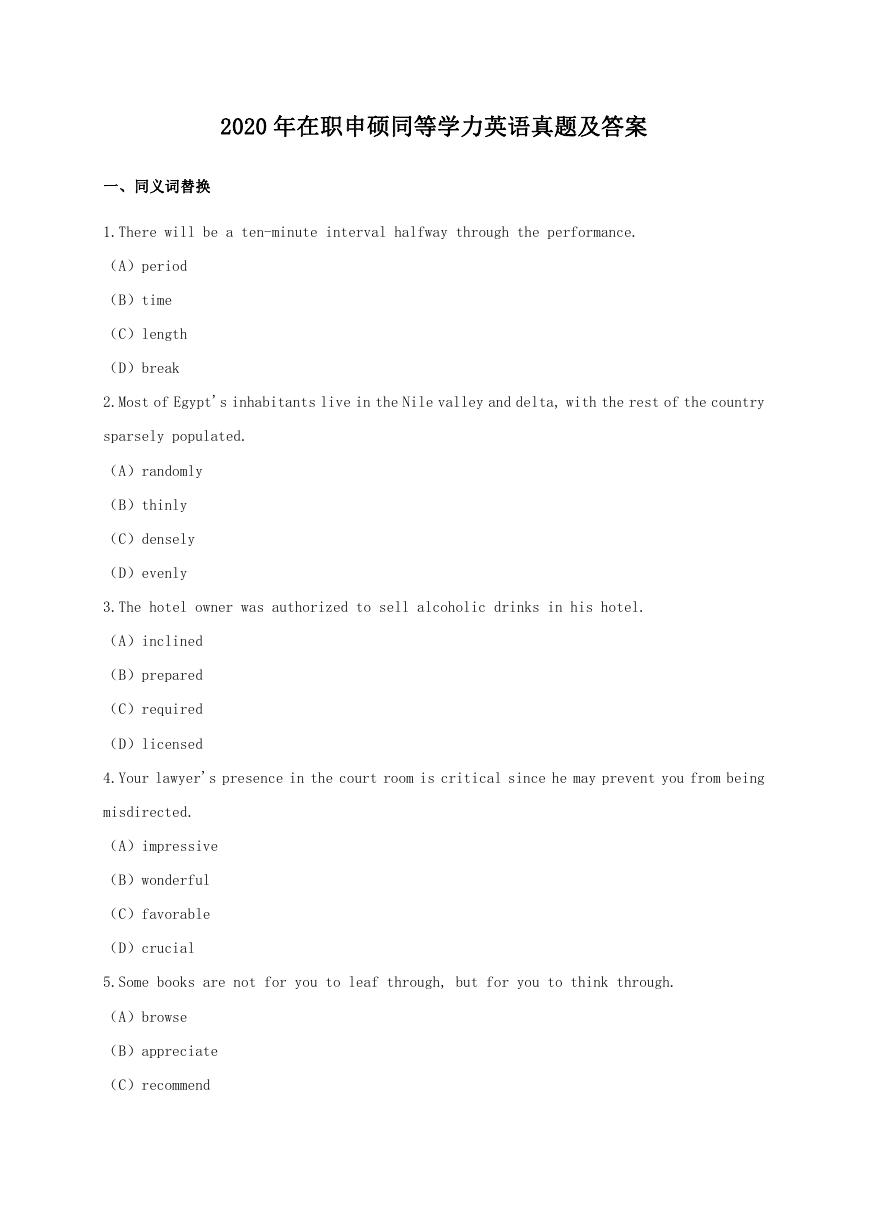

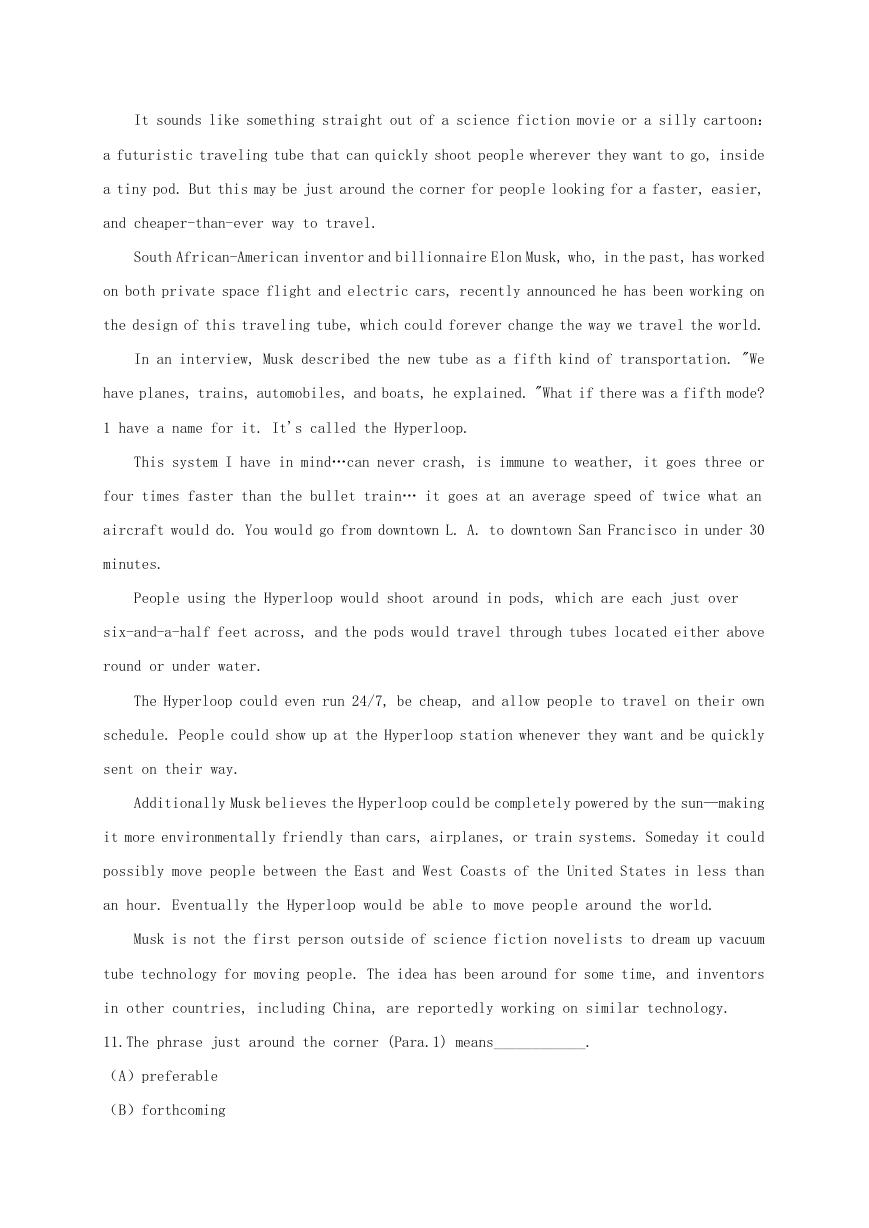
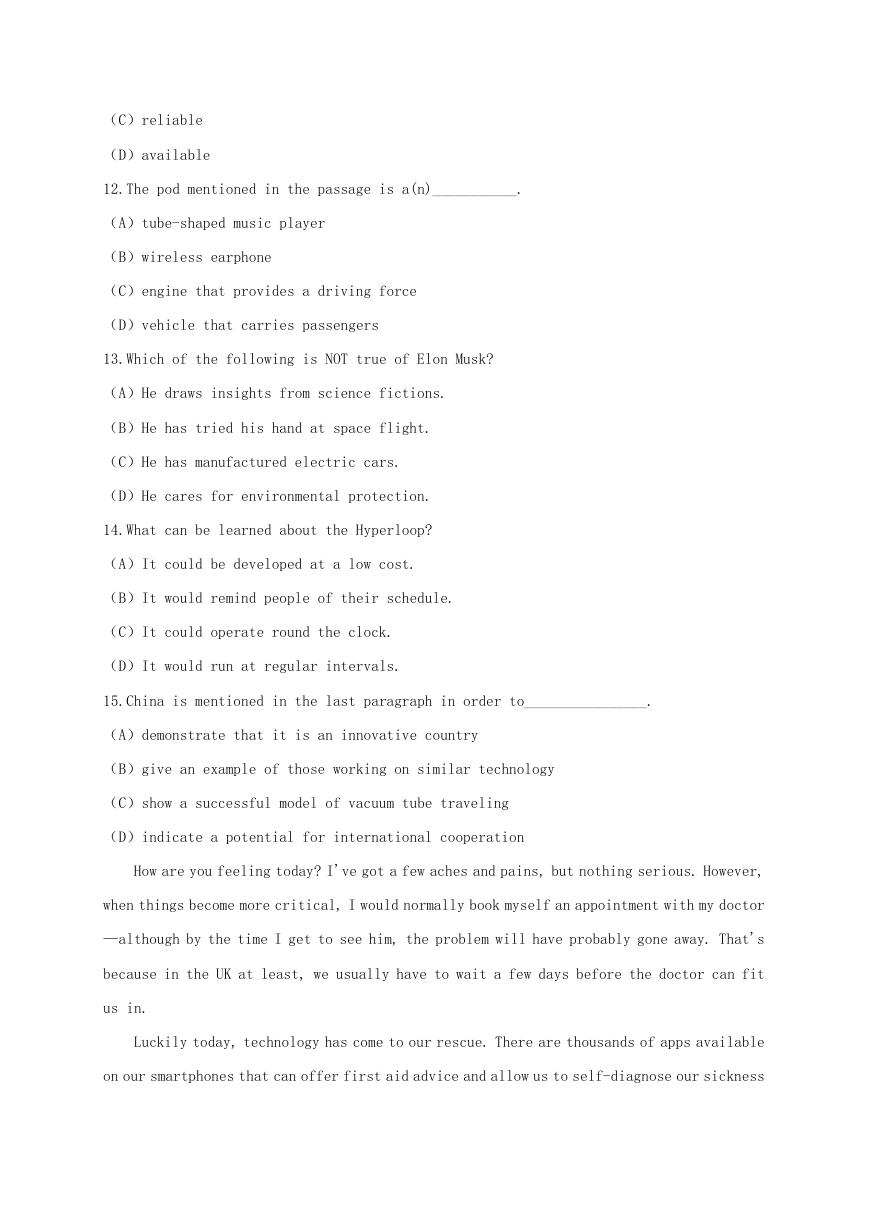

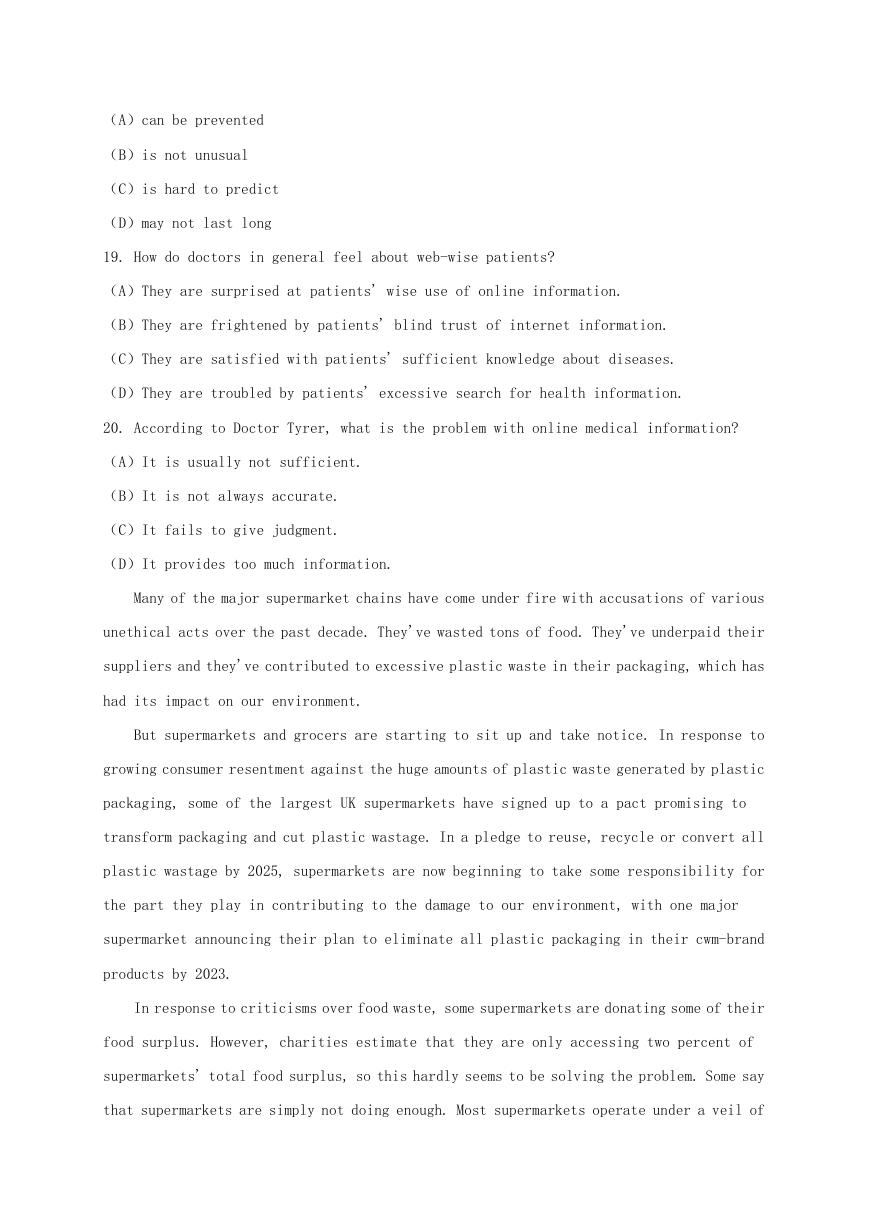
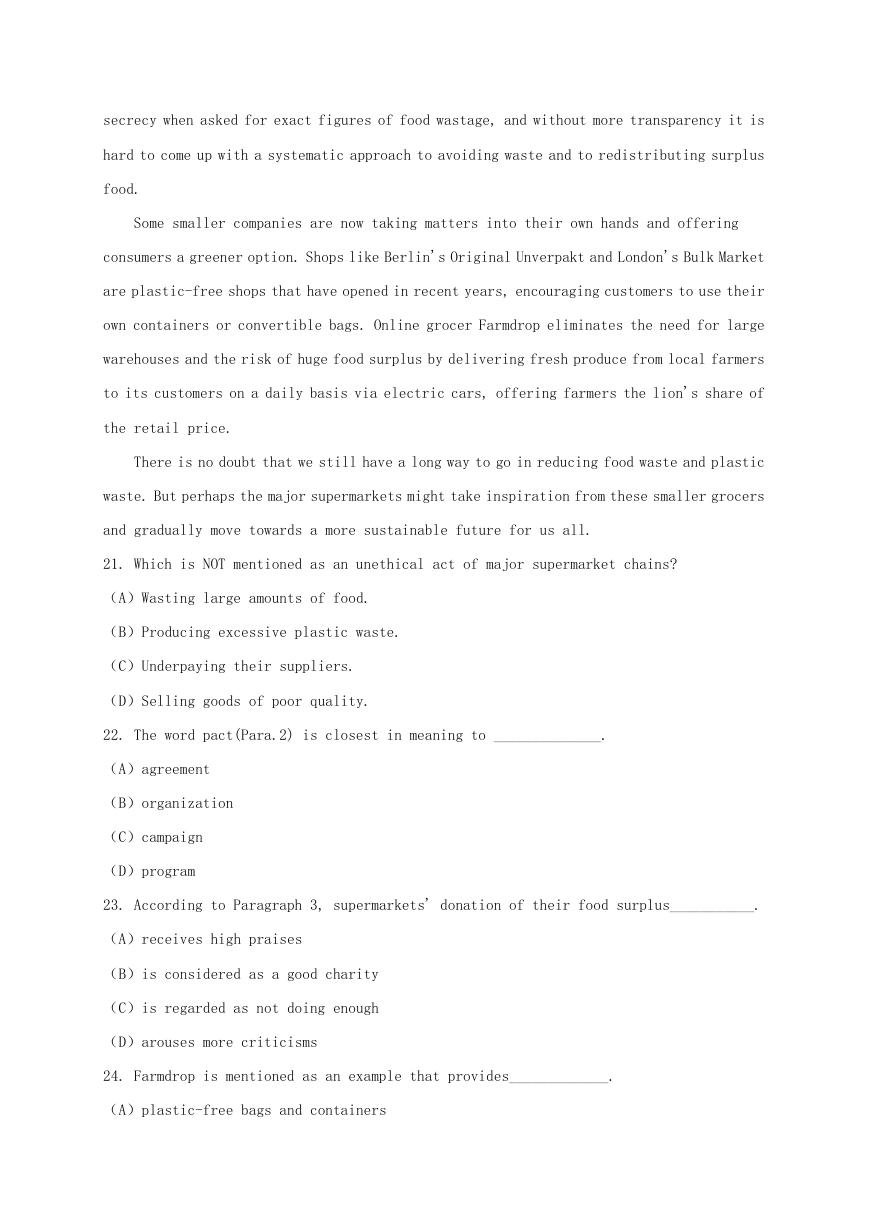
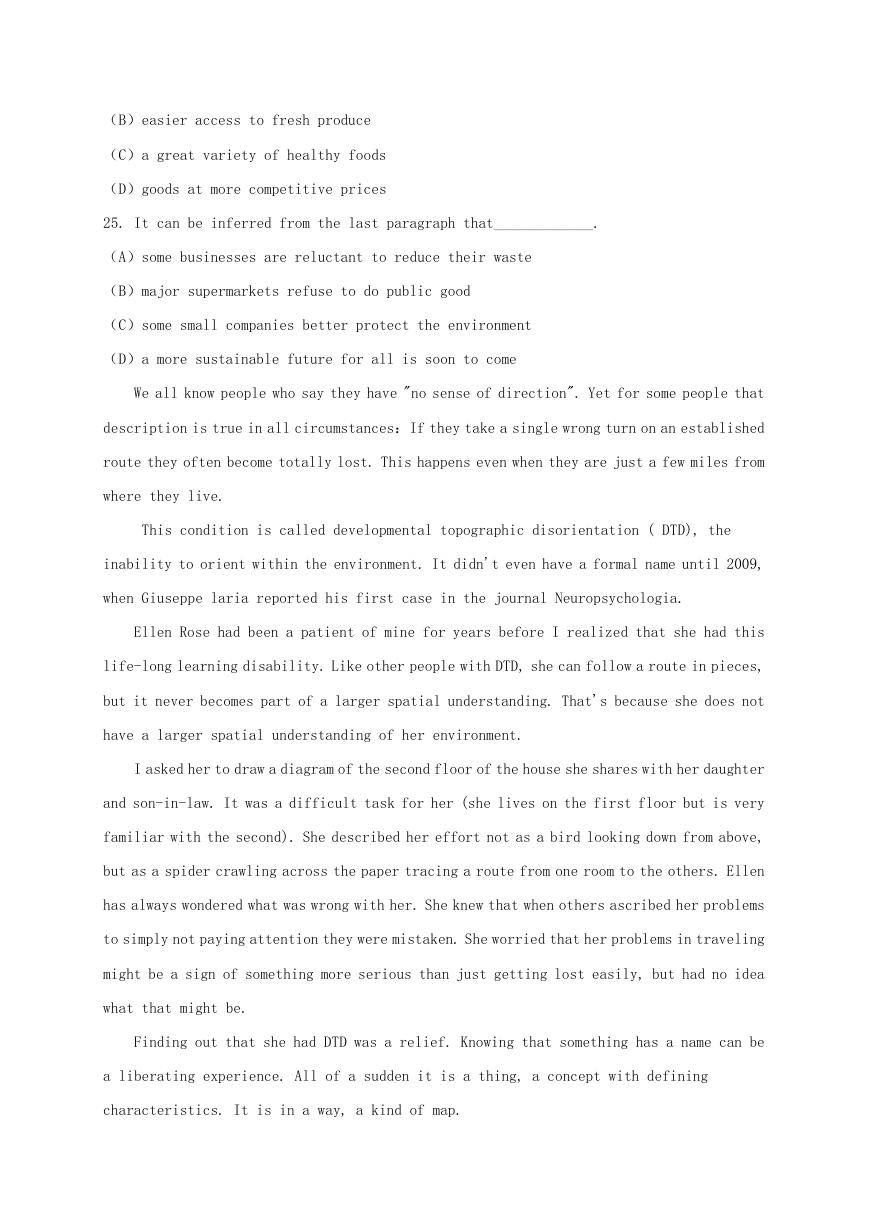








 2023年江西萍乡中考道德与法治真题及答案.doc
2023年江西萍乡中考道德与法治真题及答案.doc 2012年重庆南川中考生物真题及答案.doc
2012年重庆南川中考生物真题及答案.doc 2013年江西师范大学地理学综合及文艺理论基础考研真题.doc
2013年江西师范大学地理学综合及文艺理论基础考研真题.doc 2020年四川甘孜小升初语文真题及答案I卷.doc
2020年四川甘孜小升初语文真题及答案I卷.doc 2020年注册岩土工程师专业基础考试真题及答案.doc
2020年注册岩土工程师专业基础考试真题及答案.doc 2023-2024学年福建省厦门市九年级上学期数学月考试题及答案.doc
2023-2024学年福建省厦门市九年级上学期数学月考试题及答案.doc 2021-2022学年辽宁省沈阳市大东区九年级上学期语文期末试题及答案.doc
2021-2022学年辽宁省沈阳市大东区九年级上学期语文期末试题及答案.doc 2022-2023学年北京东城区初三第一学期物理期末试卷及答案.doc
2022-2023学年北京东城区初三第一学期物理期末试卷及答案.doc 2018上半年江西教师资格初中地理学科知识与教学能力真题及答案.doc
2018上半年江西教师资格初中地理学科知识与教学能力真题及答案.doc 2012年河北国家公务员申论考试真题及答案-省级.doc
2012年河北国家公务员申论考试真题及答案-省级.doc 2020-2021学年江苏省扬州市江都区邵樊片九年级上学期数学第一次质量检测试题及答案.doc
2020-2021学年江苏省扬州市江都区邵樊片九年级上学期数学第一次质量检测试题及答案.doc 2022下半年黑龙江教师资格证中学综合素质真题及答案.doc
2022下半年黑龙江教师资格证中学综合素质真题及答案.doc